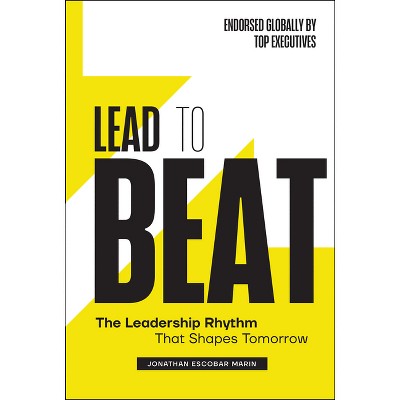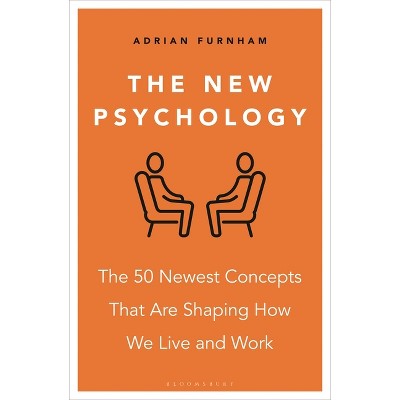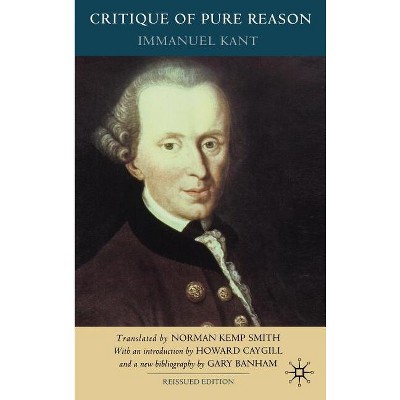Sponsored

How Reason Almost Lost Its Mind - by Paul Erickson (Paperback)
$24.00
In Stock
Eligible for registries and wish lists
Sponsored
About this item
Highlights
- In the United States at the height of the Cold War, roughly between the end of World War II and the early 1980s, a new project of redefining rationality commanded the attention of sharp minds, powerful politicians, wealthy foundations, and top military brass.
- About the Author: Paul Erickson is assistant professor of history and science in society at Wesleyan University and lives in Middletown, CT. Judy L. Klein is professor of economics at Mary Baldwin College and lives in Staunton, VA.
- 272 Pages
- History, United States
Description
Book Synopsis
In the United States at the height of the Cold War, roughly between the end of World War II and the early 1980s, a new project of redefining rationality commanded the attention of sharp minds, powerful politicians, wealthy foundations, and top military brass. Its home was the human sciences-psychology, sociology, political science, and economics, among others-and its participants enlisted in an intellectual campaign to figure out what rationality should mean and how it could be deployed. How Reason Almost Lost Its Mind brings to life the people-Herbert Simon, Oskar Morgenstern, Herman Kahn, Anatol Rapoport, Thomas Schelling, and many others-and places, including the RAND Corporation, the Center for Advanced Study in the Behavioral Sciences, the Cowles Commission for Research and Economics, and the Council on Foreign Relations, that played a key role in putting forth a "Cold War rationality." Decision makers harnessed this picture of rationality-optimizing, formal, algorithmic, and mechanical-in their quest to understand phenomena as diverse as economic transactions, biological evolution, political elections, international relations, and military strategy. The authors chronicle and illuminate what it meant to be rational in the age of nuclear brinkmanship.Review Quotes
"In the wake of World War II, a generation of self-proclaimed 'action intellectuals' fought to save the world from nuclear Armageddon. They nearly destroyed it. This extraordinary book explains how and why a generation of American social scientists reconceived human reason as algorithmic rationality--and how, when they did, they delivered us into a world that remains anything but rational. If you've ever wondered where Dr. Strangelove was born, you need look no further."
--Fred Turner, author of The Democratic Surround
"The authors do an excellent job of probing debates about the meaning, possibilities, and limits of rationality between the 1940s and the 1970s. . . . This masterly book makes a crucial contribution to understanding of Cold War thought, opens many new avenues for further research, and raises important questions about the durability of Cold War thinking in contemporary American social science."-- "Journal of American History"
"The inhuman assumptions of the postwar human sciences form the problematic for this fascinating book. If not quite a fons et origo, the Cold War arms race appears here as the uniquely disturbing frame for a wide-ranging campaign to extirpate irrationality by implementing strict rules of human reasoning."
--Theodore M. Porter, University of California, Los Angeles
"This is an important book, one that should be read not just by historians of science but by anyone interested in the unique intellectual culture of Cold War America. In this context, reason was redefined, reduced, and simplified into a rule-governed thing--a seemingly universal technology for making choices in an uncertain world. This is a brilliant insight, and the authors carry its illumination into a range of fields, from game theory and operations research to studies of heuristics and biases in individuals and decision making in groups, from the lab and the 'situation room' to the wilds of Washington policy making."
--Hunter Heyck, University of Oklahoma
"Traversing territory from Micronesia to Berlin, from Kant to Kantorovich to Schelling, from psychology to economics, How Reason Almost Lost Its Mind offers novel insights about a whole way of thinking. Moving beyond discipline-by-discipline studies, this all-star team of scholars sets the standard for new histories of American intellectual life and the vexed question of 'Cold War thought.'"--David C. Engerman, Brandeis University
"A dream team of historians of science and technology."--Nick Cullather, Indiana University Bloomington "American Historical Review"
"Broadly revelatory. . . . The authors show how dangerous our behavioral scientists (and by implication their human and social science kin) might have been, co-opted as they were into the military and political decision-making in crisis situations just as physicists were co-opted into the construction of the bomb."--Mary S. Morgan, London School of Economics "Science"
"The authors of How Reason Almost Lost Its Mind have made a particularly insightful contribution by showing how 'rationality' has a time and a place; by laying bare its historical contingency, they have taken 'rationality' off its methodological pedestal. . . . In this sense, this kind of scholarship empowers us as humans when we are confronted with the institutional authority of the social sciences."--Jeroen van Dongen "Metascience"
"Through six roughly chronological chapters, the authors demonstrate that this austere, antihumanistic concept of rationality underpinned the work of a far-flung and heterogeneous group of scholars pursing a truly dizzying variety of research programs. . . . How Reason Almost Lost Its Mind advances a provocative argument about a period of American social science that is now attracting increasing and well-justified attention. Historians of post war social science will certainly read this book with profit, as will scholars of the history of thought and, indeed, more generally of scientific practice in the United States."--Michael Rossi, University of Chicago "Endeavour"
About the Author
Paul Erickson is assistant professor of history and science in society at Wesleyan University and lives in Middletown, CT. Judy L. Klein is professor of economics at Mary Baldwin College and lives in Staunton, VA. Lorraine Daston is director of the Max Planck Institute for the History of Science and visiting professor in the Committee on Social Thought at the University of Chicago. She lives in Berlin, Germany. Rebecca Lemov is associate professor of the history of science at Harvard University and lives in Cambridge, MA. Thomas Sturm is a Ramón y Cajal Research Professor in the Department of Philosophy at the Autonomous University of Barcelona and lives in Cerdanyola del Vallès, Spain. Michael D. Gordin is professor of the history of science at Princeton University and lives in Princeton, NJ.Dimensions (Overall): 9.0 Inches (H) x 6.0 Inches (W) x .61 Inches (D)
Weight: .87 Pounds
Suggested Age: 22 Years and Up
Number of Pages: 272
Genre: History
Sub-Genre: United States
Publisher: University of Chicago Press
Theme: 20th Century
Format: Paperback
Author: Paul Erickson
Language: English
Street Date: November 17, 2015
TCIN: 1006093487
UPC: 9780226324159
Item Number (DPCI): 247-34-3138
Origin: Made in the USA or Imported
If the item details aren’t accurate or complete, we want to know about it.
Shipping details
Estimated ship dimensions: 0.61 inches length x 6 inches width x 9 inches height
Estimated ship weight: 0.87 pounds
We regret that this item cannot be shipped to PO Boxes.
This item cannot be shipped to the following locations: American Samoa (see also separate entry under AS), Guam (see also separate entry under GU), Northern Mariana Islands, Puerto Rico (see also separate entry under PR), United States Minor Outlying Islands, Virgin Islands, U.S., APO/FPO
Return details
This item can be returned to any Target store or Target.com.
This item must be returned within 90 days of the date it was purchased in store, shipped, delivered by a Shipt shopper, or made ready for pickup.
See the return policy for complete information.
Frequently bought together

$16.49 - $21.62
MSRP $22.99 - $29.99
Buy 2, get 1 free select books, music & movies
5 out of 5 stars with 1 ratings












